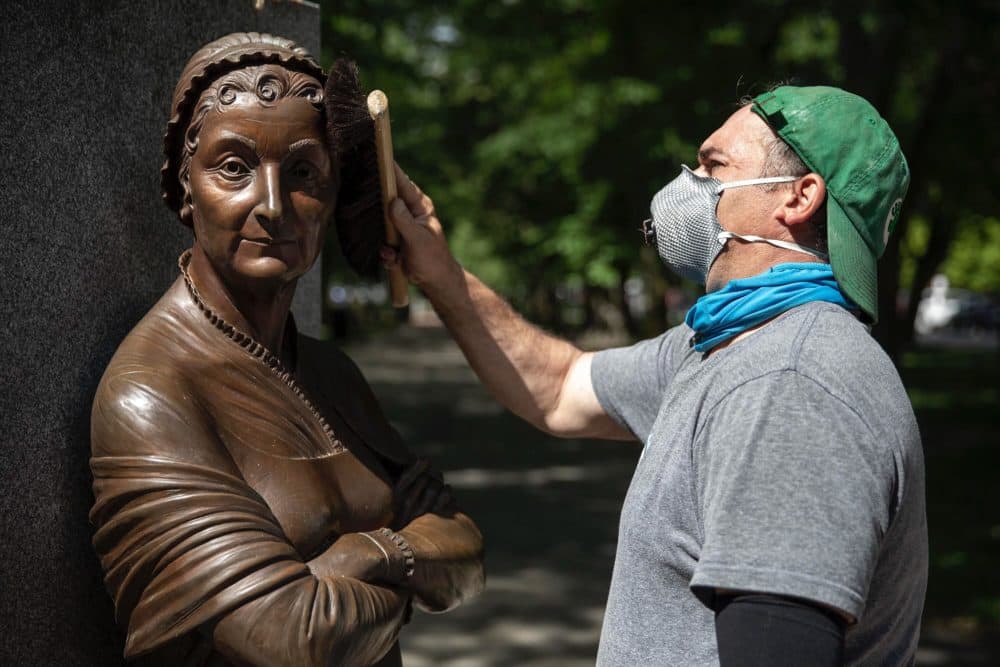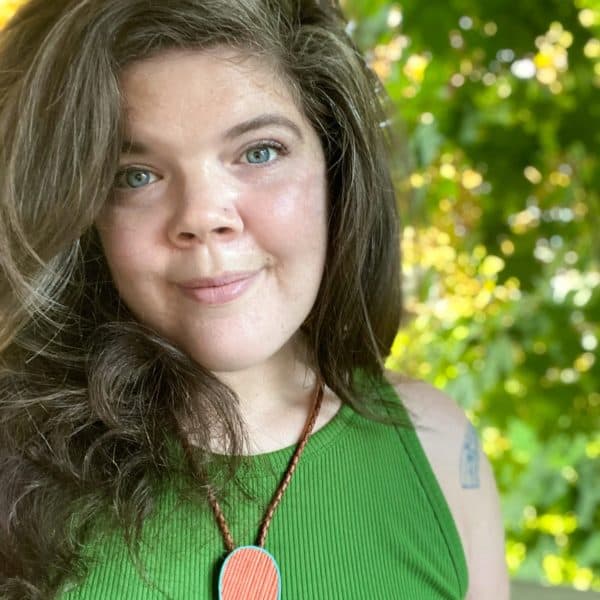Advertisement
Field Guide to Boston
New project brings the thoughts of famous women in history to life
Resume
This year marks two decades since the Boston Women's Memorial was installed. It features statues of Abigail Adams, Phillis Wheatley and Lucy Stone, three women who have important roles in the history and culture of the city and region. It's one of the stops on the Boston Women's Heritage Trail.
But Saturday will mark a new phase of the memorial. Starting Oct. 21, visitors will be able to scan a QR code on each of the statues and hear the words written by the three women read aloud by three local women leaders. It's called the Talking Statues project, and features Massachusetts Attorney General Andrea Campbell as former first lady and abolitionist Abigail Adams, Rep. Ayanna Pressley as formerly enslaved published poet Phillis Wheatley and Boston Mayor Michelle Wu as women's rights advocate Lucy Stone.
Radio Boston to talks with Andrea Campbell, Meg Campbell (no relation), co-producer of Talking Statues and a co-founder of the Boston Women's Heritage Trail and Meredith Bergmann, sculptor of the Boston Women's Memorial.
Interview highlights
Highlights from this interview have been lightly edited for clarity.
On being a part of the project with Rep. Pressley and Mayor Wu:
Andrea Campbell: "To join forces with these other women who have broken ground and call back history in this way, it's incredible. And I'm proud of us. We all served on the [Boston] City Council together and continue to make our mark in many ways in our respective roles and responsibilities. I know each of us takes what we do very serious, and we know that in this time period of so much, not just folks struggling, but of war, of division, that we have a unique opportunity to use our voices, our power, our influence to bring people together. And in this unique time, and we were presented with an opportunity to use words of incredible women leaders from the past. And to bring that to life is amazing.
I actually took a walk at one point, and went by the statues to stand there and really take it in what this will mean when you add voice in Braille and other things to [make these statutes so accessible]. It really is an amazing opportunity for visitors from Massachusetts, for the commonwealth, and I'm really excited to be a part of it."
On connecting with Abigail Adams, Phillis Wheatley, and Lucy Stone as part of the project:
Bergmann: "There has to be a way for a visitor or viewer to identify with the subject of the sculpture, to see it as a work of art, to see that it symbolizes something, but then to see through that to the person...
"When I work, I have to allow myself to identify with a subject, even if they're an incredibly accomplished, great, important person ... I learned to write persuasive letters like Abigail Adams. And from Phillis, a love of poetry, which I had neglected since high school. And I now am a published poet, and I spend a lot of time thinking in poetry. And it's really because of having to study her work to try to find out more about her."
On working to having the project accessible, and what's next:
Meg Campbell: "We hope this is just the beginning, that this will set the new norm, that all of these site places, whether they're statues or buildings or whatever, are open to those [of all abilities.] ... Professor Nancy Hall from Wellesley College did a beautiful translation... so of course we want to do [future recordings] in Spanish.
This segment aired on October 19, 2023.

